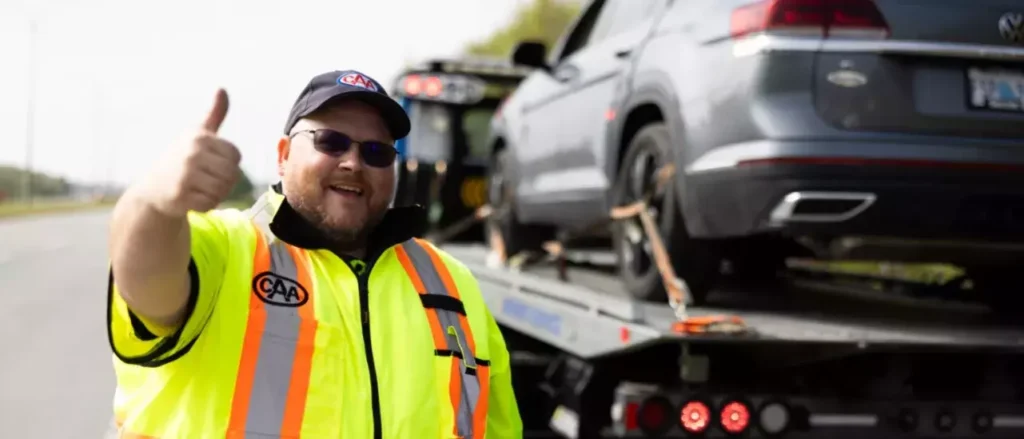Blogs
How Do I Become a Tow Truck Driver – Your Essential Guide to Entering the Roadside Assistance Industry
Are you wondering, how do I become a tow truck driver? This career combines technical skills, responsibility, and the satisfaction of helping others in emergencies. Whether you’re considering this as a full-time profession or a part-time gig, understanding the steps, pros, cons, and alternatives is essential. This comprehensive guide delves into everything you need to know about becoming a tow truck driver, offering insights, practical advice, and realistic expectations.
Who Are Tow Truck Drivers and What Do They Do?

Understanding the role of a tow truck driver is fundamental before embarking on this career path. These professionals are responsible for transporting vehicles that are illegally parked, involved in accidents, or broken down. Their work keeps roads safe and helps vehicle owners recover their cars efficiently.
Tow truck drivers operate specialized equipment, navigate various road conditions, and often work under pressure during roadside emergencies. They must balance technical proficiency with excellent customer service skills. The job can be physically demanding but rewarding for those who enjoy problem-solving and hands-on work.
To succeed as a tow truck driver, one must understand the different types of tow trucks, safety protocols, and legal regulations governing towing operations. It’s also vital to develop strong communication skills since drivers interact directly with clients, law enforcement, and vehicle owners.
How to Become a Tow Truck Driver – Step-by-Step Process
Thinking about how do I become a tow truck driver involves understanding the specific steps required to enter this field. While pathways may vary based on location and individual circumstances, the following outline provides a clear roadmap.
Obtain the Necessary Education and Basic Qualifications
Before starting, ensure you meet the minimum requirements such as age, driver’s license, and education. Most regions require at least a high school diploma or GED. Having a clean driving record is crucial, as employers prioritize safety and reliability.
Gain Relevant Driving Experience
Experience in driving large vehicles, such as trucks or commercial vehicles, is highly advantageous. Many employers prefer candidates with a background in trucking or transportation, which demonstrates familiarity with vehicle handling and road safety.
Acquire a Commercial Driver’s License (CDL)
A key step to how do I become a tow truck driver is obtaining a CDL, usually Class B or even Class A, depending on the tow truck type. This involves passing written exams and a driving skills test. Some regions also require additional endorsements, like hazardous materials or passenger transport.
Complete Towing-Specific Training and Certification
Many jurisdictions offer or require specialized training programs focusing on towing techniques, safety procedures, and vehicle recovery. Certifications from recognized bodies can enhance credibility and job prospects.
Gain On-the-Job Experience
Starting as an apprentice or entry-level driver allows you to learn practical skills under supervision. Real-world experience is invaluable for mastering vehicle recovery, maneuvering tight spaces, and customer interactions.
Consider Specializations
Some tow truck drivers choose to specialize in areas like heavy-duty towing, accident recovery, or roadside assistance. Additional certifications and experience can open up higher-paying opportunities.
Build a Professional Portfolio and Network
A strong resume highlighting your training, experience, and certifications, complemented by good references, will help secure employment. Networking with industry professionals can also lead to better job opportunities.
Pros and Cons of Becoming a Tow Truck Driver – Is It Right for You?
Embarking on a career as a tow truck driver offers unique advantages but also presents notable challenges. Evaluating these factors thoroughly will help decide if this profession aligns with your interests and lifestyle.
Advantages
- Job Stability and Demand Vehicles are integral to daily life, ensuring consistent demand for towing services. Emergency roadside assistance and fleet support provide steady employment opportunities.
- Independence and Flexibility Many tow truck drivers work independently or for small companies, allowing flexible schedules and autonomy in decision-making.
- Helping Others Providing roadside assistance can be highly rewarding, offering a sense of accomplishment when aiding stranded motorists or accident victims.
- Potential for Earnings Depending on the region and experience, tow truck drivers can earn competitive wages, especially with overtime and after-hours work.
Disadvantages
- Physically Demanding Work Handling heavy vehicles and working in adverse weather conditions can be tough on the body.
- Irregular Hours and Emergencies Towing often involves night shifts, weekends, and responding to urgent situations, impacting work-life balance.
- Safety Risks Working on busy roads exposes drivers to accidents and hazards, requiring constant vigilance and safety precautions.
- Emotional Challenges Dealing with distressed customers and managing stressful roadside scenes can be emotionally taxing.
Is It the Right Fit?
If you thrive in dynamic environments, value independence, and are comfortable with physical and emotional challenges, becoming a tow truck driver could be fulfilling. However, those seeking a predictable routine with minimal risk may find this career less suitable.
Alternatives to Traditional Tow Truck Driving
Not everyone interested in vehicle recovery wants to pursue the conventional tow truck driver route. Several alternative careers share overlapping skills or offer similar benefits:
Vehicle Recovery Specialist
Specializing in complex recovery scenarios, such as off-road accidents or heavy machinery, demands advanced skills but often yields higher pay and specialized recognition.
Fleet Maintenance Technician
Focusing on repairing and maintaining tow trucks and other commercial vehicles. This role blends technical expertise with vehicle operation knowledge.
Roadside Assistance Provider
Working for insurance companies or roadside service companies, providing emergency aid without necessarily operating a tow truck.
Commercial Truck Driver
Driving larger freight trucks or delivery vehicles, leveraging driving skills but focusing more on logistics than vehicle recovery.
Automotive Service Technician
Offering repairs and diagnostics for personal and commercial vehicles, combining technical skills with customer service.
These alternatives allow individuals to leverage their knowledge of vehicles and roads while tailoring their careers to different preferences or skill sets.
Tips for Successfully Entering the Tow Truck Industry
Preparing adequately enhances your prospects and ensures a smoother transition into this challenging yet rewarding career. Here are key tips to consider:
| Tip | Explanation |
|---|---|
| Research Local Regulations | Laws and licensing requirements vary; understanding regional rules is foundational. |
| Invest in Proper Training | Enroll in reputable courses covering towing techniques, safety, and customer service. |
| Maintain a Clean Driving Record | Safe driving history fosters employer trust and reduces insurance premiums. |
| Develop Physical Fitness | Building strength and stamina helps manage heavy loads and long shifts. |
| Cultivate Customer Service Skills | Good communication improves client interactions and reputation. |
| Build Industry Connections | Attend local industry events or join associations to access job opportunities. |
Personal insights suggest that enthusiastic learning, proactive networking, and maintaining safety standards are pivotal to long-term success.
FAQs About Becoming a Tow Truck Driver
What qualifications are necessary to become a tow truck driver?
Most regions require a valid driver’s license, preferably a CDL for larger trucks. A clean driving record, basic education, and sometimes completion of specific training or certification programs are also necessary.
Is prior experience needed to start as a tow truck driver?
While not always mandatory, experience in truck driving or mechanics can give you an advantage. Entry-level positions often provide on-the-job training, making it accessible to newcomers.
How much can I expect to earn as a tow truck driver?
Earnings vary based on location, experience, and whether you’re employed by a company or self-employed. On average, tow truck drivers make between $30,000 and $50,000 annually, with potential for extra income through overtime.
Are there risks associated with this job?
Yes, working on busy roads and handling heavy equipment poses safety risks. Proper training, safety gear, and adherence to protocols are essential to minimize hazards.
Can I become a tow truck driver without a commercial driver’s license?
In some cases, if operating smaller tow trucks, a standard driver’s license might suffice. However, for most commercial-sized trucks, a CDL is typically mandatory.
Conclusion
Deciding how do i become a tow truck driver involves understanding the essential steps—obtaining necessary licenses, gaining relevant experience, and acquiring specialized training—while weighing the pros and cons of the profession. The industry offers stability, independence, and the chance to help others, but also requires resilience, physical endurance, and attention to safety. Alternatives exist within vehicle recovery and automotive fields, providing additional pathways for interested individuals. With thorough preparation, dedication, and a genuine desire to serve, a career as a tow truck driver can be both rewarding and sustainable, offering a unique blend of technical challenge and community impact.




